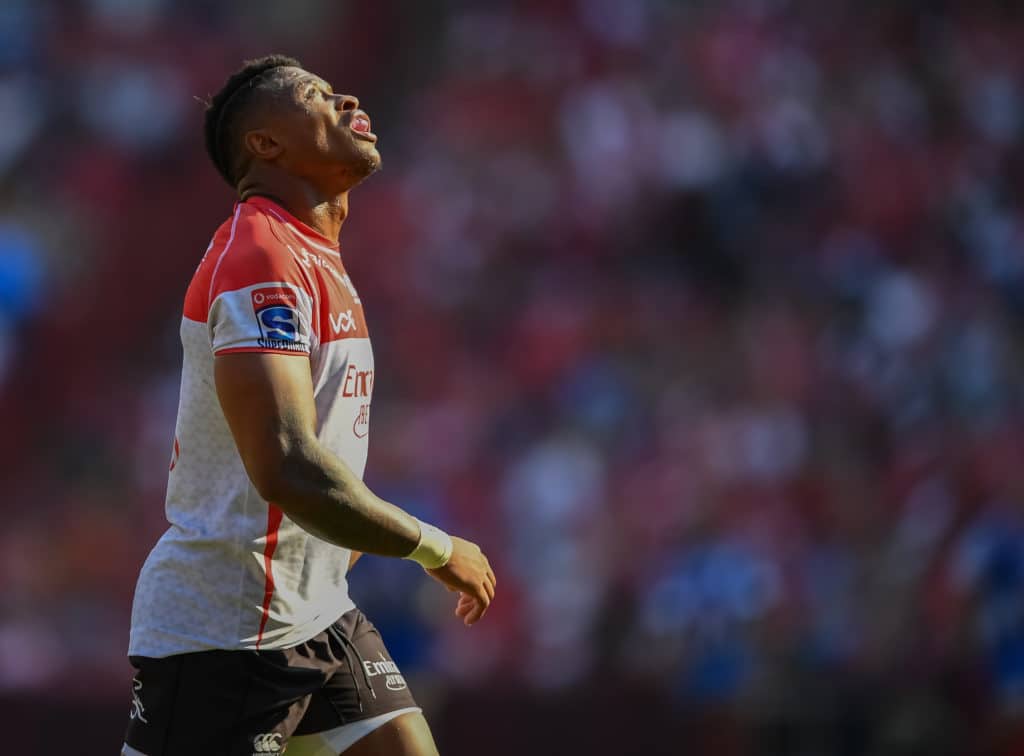Saids CEO Khalid Galant says Springbok wing Aphiwe Dyantyi will find it difficult to prove due diligence after he tested positive for multiple banned substances.
Dyantyi has been formally charged with a doping offence and faces a potential four-year ban after both his A and B urine samples tested positive for multiple anabolic steroids and metabolites.
The 25-year-old Springbok wing has maintained his innocence and looks set to fight the allegations levelled against him.
Speaking to talk show host Eusebuis McKaiser on Monday, Galant explained that professional athletes – like Dyantyi – are more likely to receive maximum sanction because they are held to a higher standard than under-age offenders and semi-professionals.
‘The defence of “I did not know” doesn’t fly very well. A professional athlete will have a higher threshold to convince a tribunal panel than say, for instance, a Craven Week player – in terms of due diligence – because professional athletes have entire medical entourages around them that they are supported by,’ said the CEO of the South African Institute for Drug-Free Sport (Saids).
‘So a professional athlete will have a higher bar to overcome to convince a panel. And again, those are only considered mitigating circumstances. If you recall a couple of years ago, Bjorn Basson and Chilliboy Ralepelle tested positive for a banned substance and they were given a warning because they provided proof of due diligence.
‘It’s on a case-by-case basis; in some instances there have been situations where tribunal panels have looked on such explanations favourably and have reduced the sanction, but I don’t know of any cases where an athlete was exonerated based on the defence of “I didn’t know”.’
Galant reiterated that because Dyantyi tested positive for more than one anabolic substance, he is likely to be handed the maximum four-year sanction.
Photo: Anton Geyser/Gallo Images





